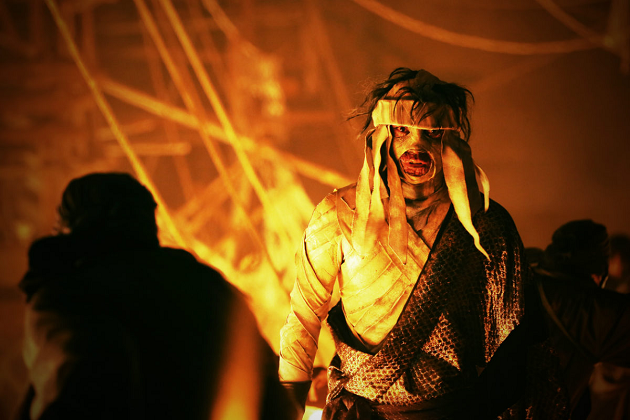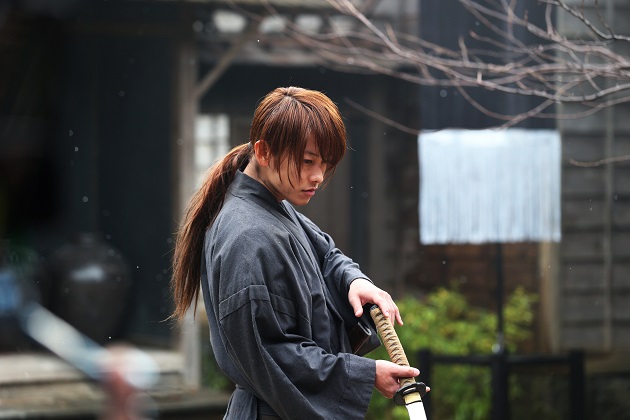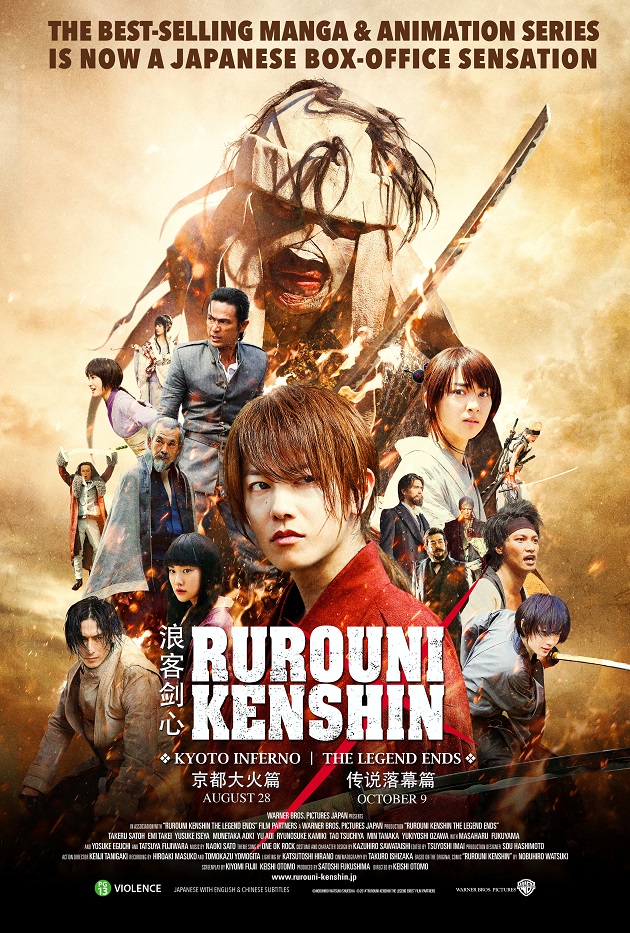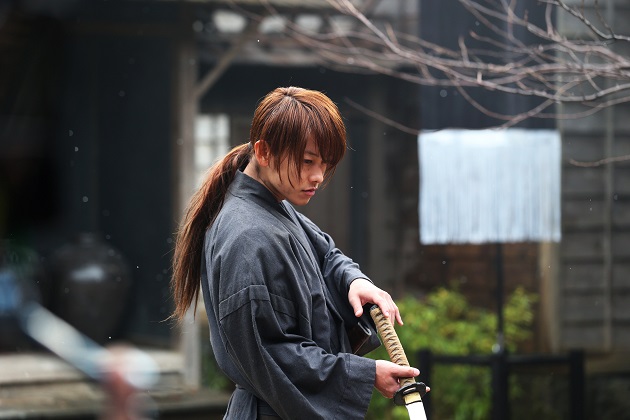
Should you watch this at weekend movie ticket prices? Yes, especially if you are a Rurouni Kenshin fan.
Should you watch this at weekday movie ticket prices? Of course!
Secret ending? No.
Running time: 139 minutes (~2.5 hours)
“Rurouni Kenshin: Kyoto Inferno” is Japanese period piece which is an adaptation of the manga of the same title. It tells the tale of Kenshin, a samurai who seeks atonement for his past murders, as he struggles to stop the rise of his evil counterpart, Shishio. It stars Takeru Satoh (Himura Kenshin), Emi Takei (Kamiya Kaoru), Tatsuya Fujiwara (Makoto Shishio), and Ryunosuke Kamiki (Seta Sojiro).
“Rurouni Kenshin: Kyoto Inferno” is a wonderfully executed adaptation that manages to wield together all the highlights of the manga and anime, while still fully utilising the film medium to tell its tale. Despite being the first part of a two-part sequel, it manages to be a self-sufficient, coherent story – not an easy feat for a two-part sequel!

So what makes this second instalment of “Rurouni Kenshin” such a hit?
Strong characterisation
Kenshin’s motivations are never in doubt – while he may not say much, his desire to protect the innocent and those he cares about is always clear. The same goes for Shishio – we get an introduction montage that establishes his character and goals, which slowly builds up to his ultimate ambition. The conflict between both characters is natural and inevitable, and this is what drives the plot forward to its dramatic conclusion.
Action sequences
Compared to the first instalment, “Rurouni Kenshin,” “Kyoto Inferno” doubles up on the action, showcasing not just duels between Kenshin and various opponents, but battles between other supporting characters as well. This mix of action serves to quell any action movie fan, and also shows us just why Kenshin is such a feared and revered swordsman.
Seta Sojiro
Seta Sojiro mesmerises with his cheerfully psychopathic demeanour and eerily gentle voice. As one of the chief antagonists (besides Shishio), his disarmingly harmless appearance strikes a jarring juxtaposition with his formidable combat prowess, and this makes for a uniquely interesting character. His performance doesn’t disappoint either.

Still, there were some parts of “Rurouni Kenshin: Kyoto Inferno” that could have been handled better.
Overly long duration
The movie comes in at a whopping 2.5 hours. While this length definitely affords the film the time to tell a properly structured and satisfying story, it also leaves you wondering if certain subplots could be cut. The Aoshi thread, for instance, doesn’t really come to fruition in this instalment – and one wonders if it would have been better to set it up and conclude it in the third movie instead, thus giving us a “Kyoto Inferno” with a tighter, sharper focus.
Too many characters
The sprawling reach of the narrative requires many, many characters to fulfil the story. And as an adaptation, it is necessary to pay homage to as many of the characters in the original manga as well. However, this results in lesser screen time, and thus less developed and memorable characters. Perhaps trimming the aforementioned Aoshi subplot (much as I like him) would have given the other characters the requisite room to grow and shine?

“Rurouni Kenshin: Kyoto Inferno” strikes a perfect balance between the romanticism of samurai seeking redemption with the action expected from many swordfighters clashing with each other. But most importantly, it tells the tale of a man willing to lay down his life to protect the weak. And isn’t that what we should all aspire to in life?
Leave a Reply